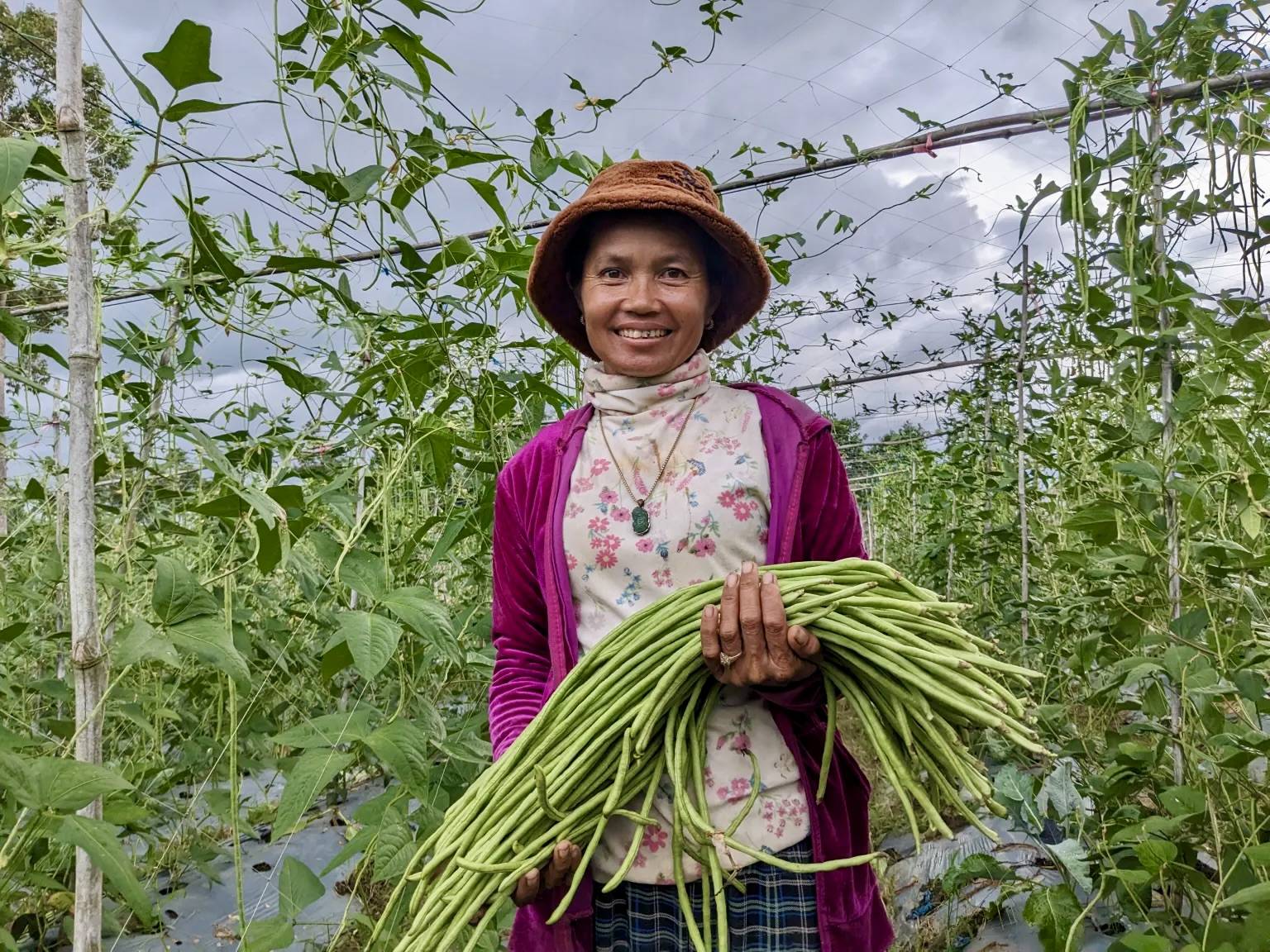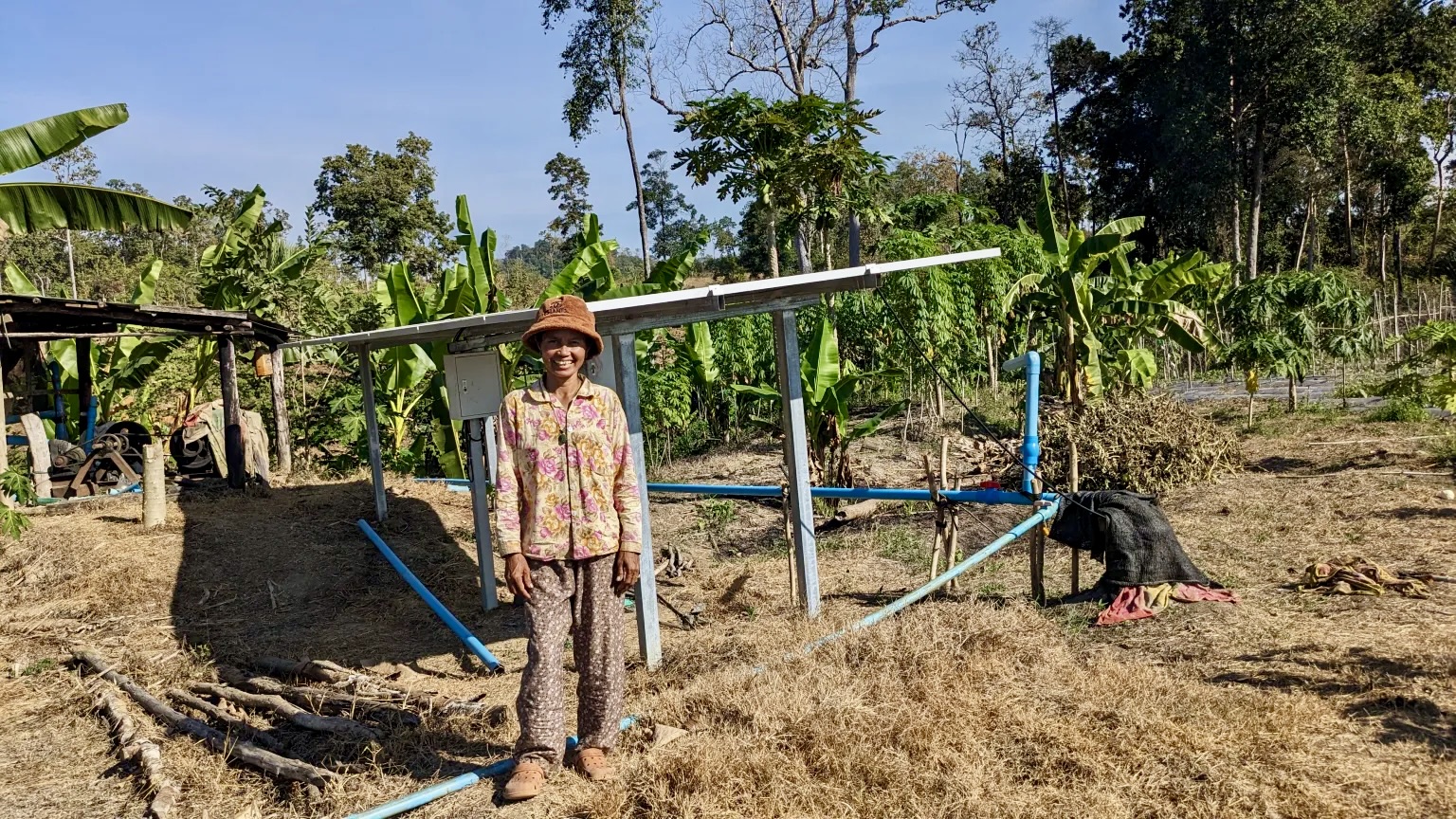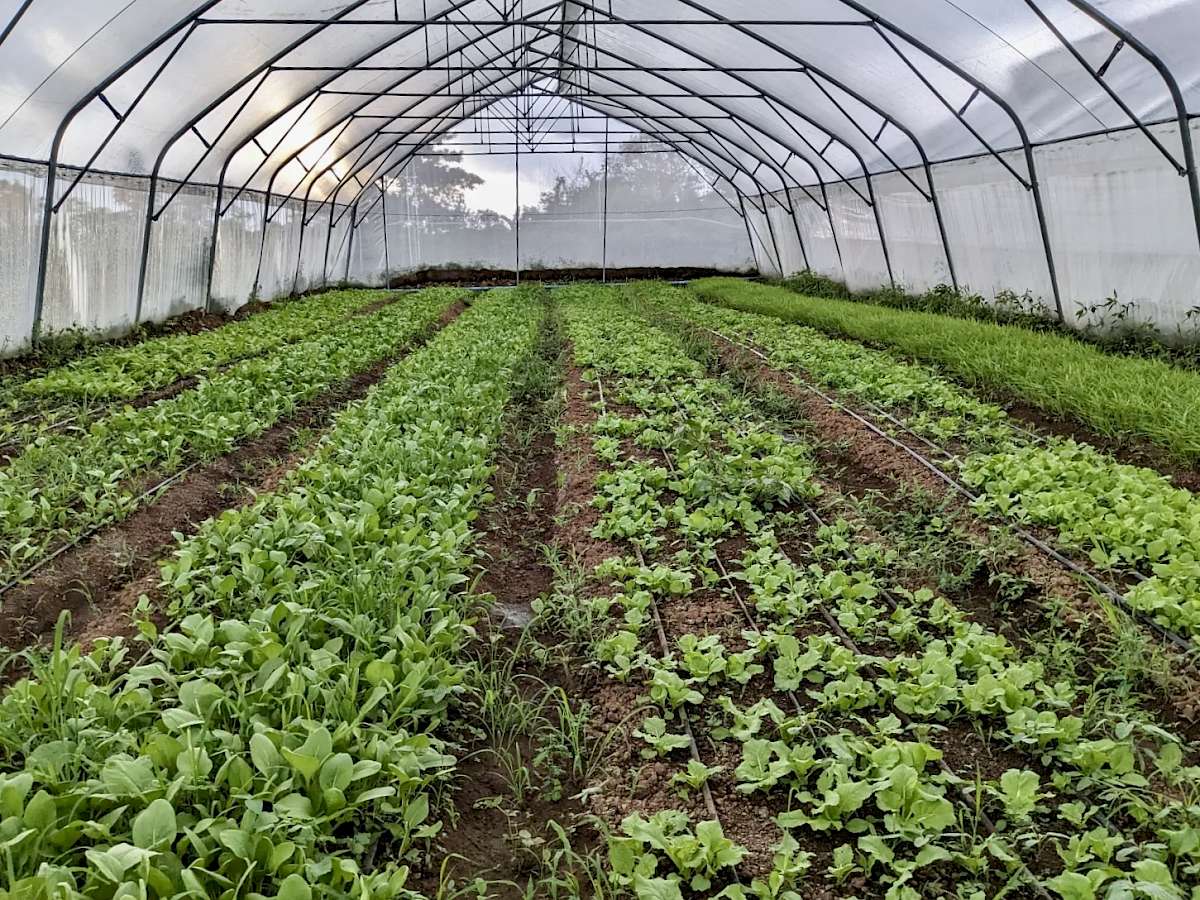
Adopting clean energy contributes immensely to the fight against climate change. A large portion of the greenhouse gases that blanket the Earth and trap the Sun's heat are generated through human activity, primarily energy production by burning fossil fuels (oil, coal, and gas) to generate electricity and heat.
As the world transitions towards just and clean energy, relevant actors must ensure that everyone has access to this resource, which will help drive sustainable development for countries globally. Providing access to and knowledge of clean energy is one of the main focuses of the EU SWITCH-Asia funded SWITCH to Solar project.
Meet Ms. Nop Kolap, a farmer from the Veal Veng district in Pursat province. She has not only embraced solar technology but has also become a keen advocate for its adoption in her community. She proudly owns a 2-hectare farm where she cultivates a variety of crops, including cucumbers, tomatoes, papayas, and more. Her story takes an inspiring turn as she recounts her journey from traditional energy sources to the sustainable embrace of solar technology.
“My farm relied on generators to meet its energy needs. However, in 2023, it was chosen as a demo site for the SWITCH to Solar project. This was the first time I was introduced to the solar water pump,” Ms. Kolap shares.
This marked the beginning of a transformative period for her farm. The solar water pump, a cutting-edge solar technology, replaced the traditional generators, offering Ms. Kolap a more reliable and eco-friendly energy source for irrigation and other farming necessities.
"I learned about this technology from the SWITCH to Solar team when they visited my house to explain its advantages and disadvantages. I tried using it in 2023, and it proved to be very useful and easy for me," Ms. Kolap adds.


Since adopting solar technology, she has experienced positive changes in her farming operations. The consistent and reliable energy supply for irrigation has led to an increase in crop yield, resulting in higher sales during the harvest season. Her profit averages $1,000 per month and could increase during the harvest season.
Using solar technology in agriculture offers me numerous benefits, including cost savings, improved water management, environmental sustainability, and a reliable energy supply. Diesel-run generators cause a lot of damage, are much more expensive, and often provide an insufficient amount of water.
The reduction in maintenance costs and time spent on energy systems has been a game-changer for Ms. Kolap. Solar technology has not only proved to be financially beneficial but has also contributed to environmental preservation, aligning her farming practices with sustainable principles.
Community Impact and Advocacy: From Skepticism to Gratitude
Ms. Kolap is not just a beneficiary but a proactive advocate for solar technology in her community. Initially skeptical, community members were hesitant about adopting solar due to misconceptions about its convenience and efficiency. However, with education and firsthand experience, perspectives shifted.
We are thankful for the SWITCH to Solar project, which has helped our community. At first, we were not interested in solar because we were unaware of its convenience and efficiency. After learning more about the benefits of solar, our community reconsidered, and we can now see how helpful it has been.
Encouraged by Ms. Kolap's success, many of her peers and neighbors in Pursat province have made the switch to solar technology. The positive ripple effect has not only improved individual livelihoods but also contributed to a more sustainable and resilient community.
The SWITCH to Solar project is funded by the European Union through its SWITCH Asia Programme and the Government of the Czech Republic through the Czech Development Agency. The project is co-implemented with People in Need Cambodia, EnergyLab, and Sevea.


